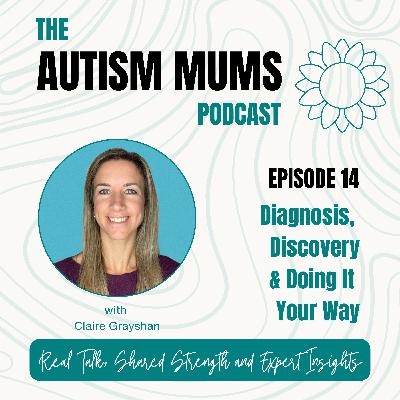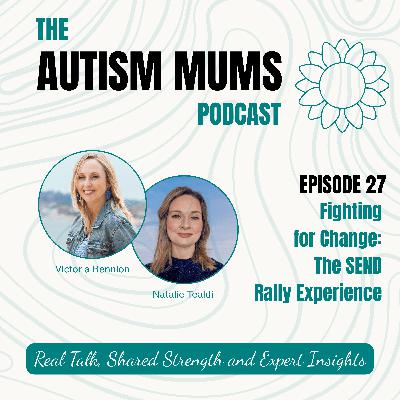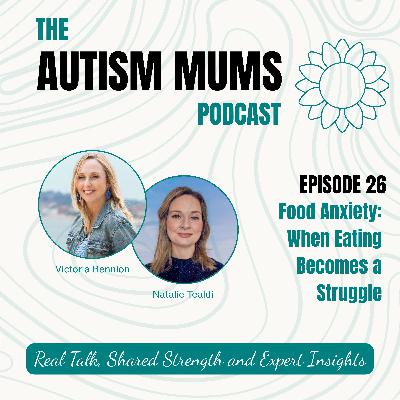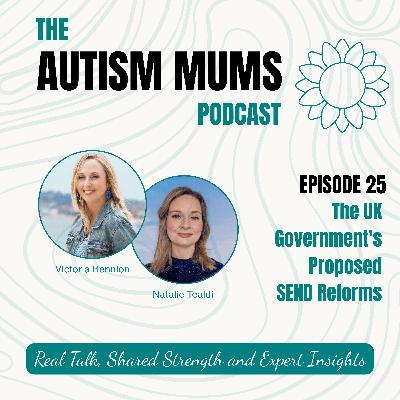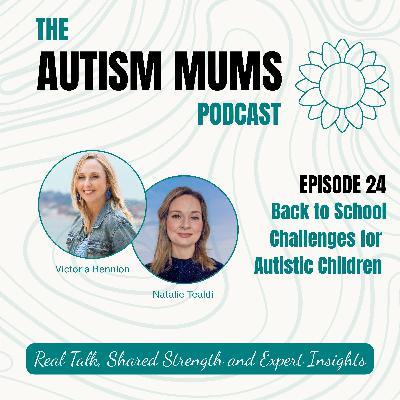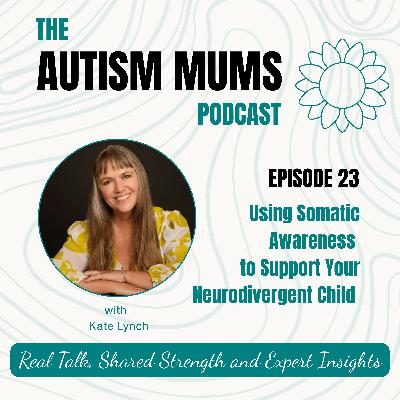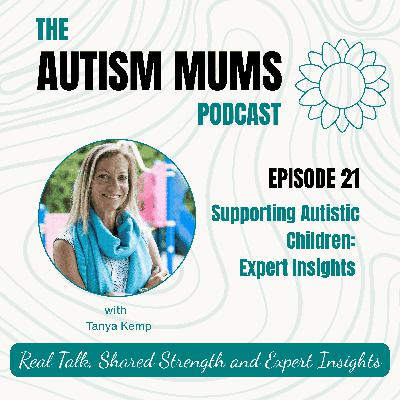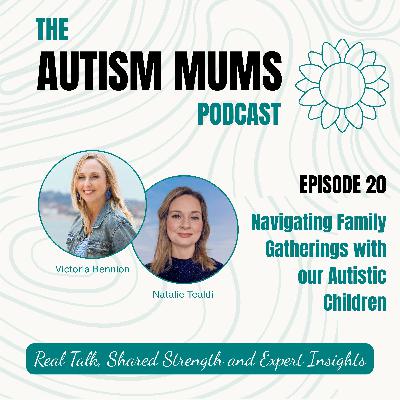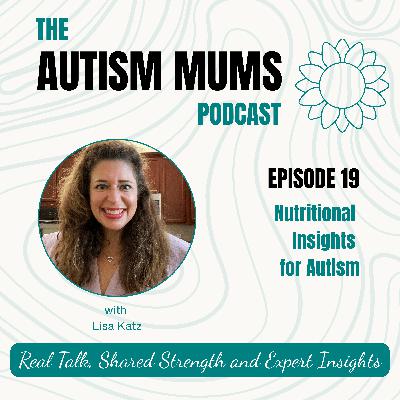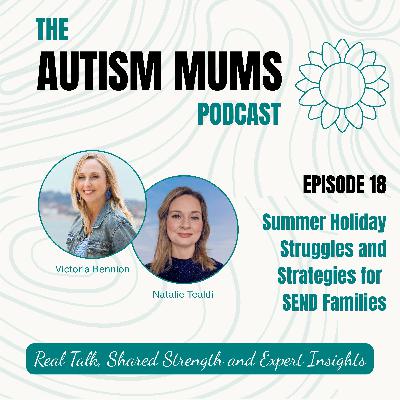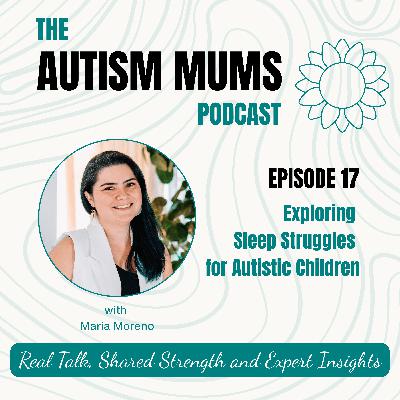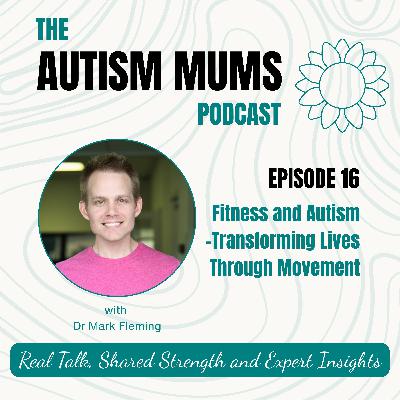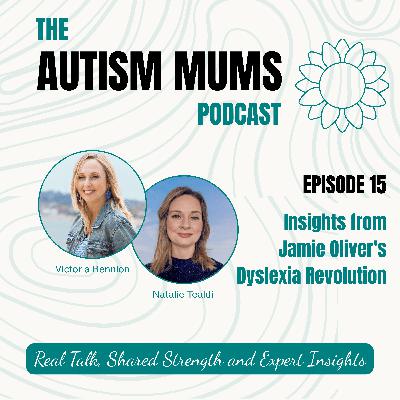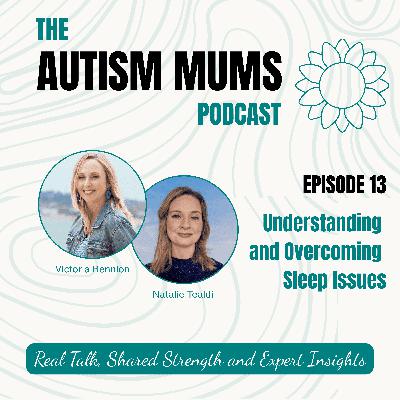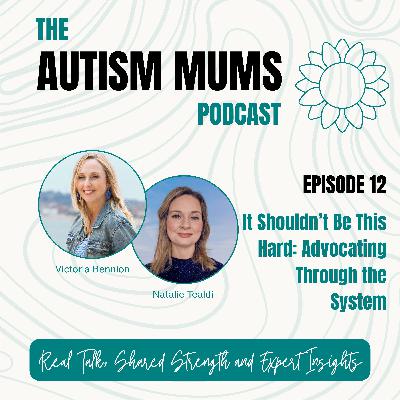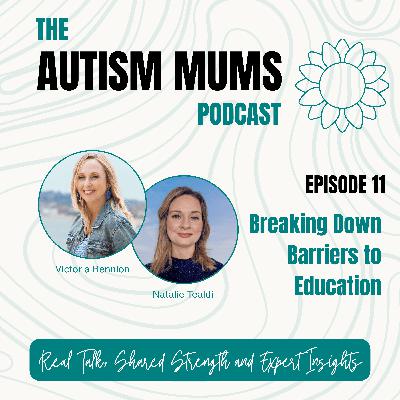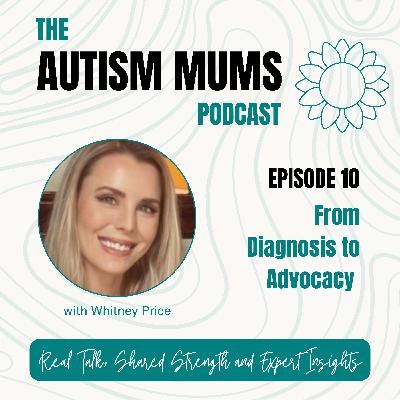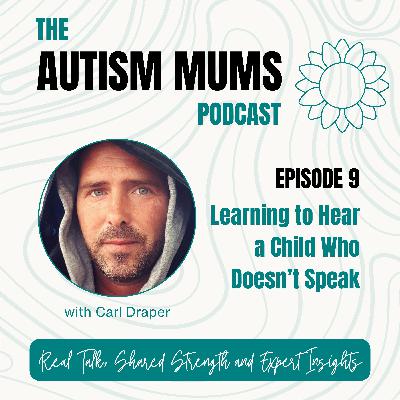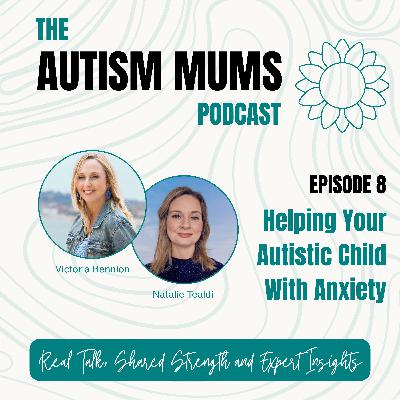Diagnosis, Discovery & Doing It Your Way with Claire Grayshan
Description
In this week's episode of The Autism Mums Podcast we welcome, Claire Grayshan, business coach and mother to three neurodivergent children to the show. Claire opens up about her journey to receiving both an autism and ADHD diagnosis later in life, how it transformed her parenting and why recognising your strengths can be the key to building a life that truly works for you.
Biography
Claire is a late-diagnosed autistic ADHDer, mum of three neurodivergent kids, and a passionate advocate for better mainstream school support, as both a parent and school governor. She spent years masking, overachieving, and burning out, first navigating a system that doesn't fit her children, then growing a business using strategies that didn’t fit her brain.
After autistic burnout, she rebuilt her business on her own terms. Now, as founder of The Virtual Vibe Coaching, she helps online service providers and coaches realign their strategy and simplify sales, so they can grow sustainably, without burnout, or forcing what doesn’t fit.
Key Takeaways
How late diagnosis can shape how you see yourself. It can bring clarity, self-compassion, and validation after years of internal doubt and masking.
How recognising shared neurodivergent traits can strengthen your parenting. It can fostering deeper connection and more empathetic support for your children.
How the school system falls short - what small, practical changes could make classrooms more inclusive and less overwhelming for neurodivergent learners.
How receiving a diagnosis can boost your confidence as an advocate - helping you trust your instincts and push past self-doubt when navigating EHCPs and school challenges.
How building a business around your energy and strengths is important - especially when traditional models drain you and don’t reflect your reality as a neurodivergent parent.
Quote
"We are the best people to parent our children because we’re perfect for them." — Claire Grayshan
Connect with Claire Grayshan
Sales Strategy Selector Quiz
Uncover how you sell best and which strategy suits you — based on your natural style and personality — so you can align your strategy, play to your strengths, and see your content convert. https://www.thevirtualvibe.co.uk/salesstrategyselector
Website - www.thevirtualvibe.co.uk
Instagram - https://www.instagram.com/thevirtualvibeuk/
LinkedIn - https://www.linkedin.com/in/claire-grayshan-48a707143/
TikTok - https://www.tiktok.com/@thevirtualvibeuk
Connect with The Autism Mums
https://theautismmums.com/
Follow us on Instagram https://www.instagram.com/theautismmums
Follow us on TikTok https://www.tiktok.com/@theautismmums
Transcript
[00:00:00 ] Hello and welcome to
the Autism Mums podcast. I'm Victoria. And I'm Natalie. We are two sisters
raising autistic children who know the joy, the challenges, and the everyday
moments. This is a supportive space for honest conversations, practical tips,
shared strength and expert advice. Whether you are celebrating a win, surviving
a meltdown, or just trying to make it through the day, we are right here with
you.
Join us as we share the ups, the downs, and everything in
between parenting autistic children.
Victoria Bennion:
Today we're joined by Claire Gration, a brilliant business coach, a mom to
three neurodivergent children. Claire shares her powerful story of being
diagnosed with autism and A DHD in her late thirties, and she talks about how
that moment changed, not just how she sees herself, but also how she parents
advocates and runs her business.
Victoria Bennion:
Welcome to the podcast, Claire. It's great to have the [00:01:00 ]
chance to chat with you today.
Claire Grayshan:
Thank you Thank you for having me on..
Victoria Bennion:
Could you begin by talking about what it was like getting your autism and a DHD
diagnosis later in life, while also parenting neuro divergent children.
Claire Grayshan:
Yeah. Oh, where do I even begin? That is such a huge question, isn't it? I
think, so for me, what led to my diagnosis was through, through my children,
their needs and identifying those and then actually realizing we're really
alike. We're alike in so many ways, which is brilliant, and it enhances our
bond.
Claire Grayshan: But
then it also makes you think, actually if they're autistic, then I've gotta be
autistic. And I wasn't actually gonna explore it further. I was quite happy
with my own. Self validation of that. But my, it was one of my children that
said if I've had an, I, I appreciate the honesty and the bluntness 'cause I'm
the same, and she said, if I've had an assessment, why aren't you having an
assessment? And I said that's a good point. Do you feel that it would be useful
if mommy, we had an assessment? And she said [00:02:00 ]
yes. So that's what sort of initiated that. In terms of the diagnosis itself, I
actually went through the right to choose and it turned out that I had
literally a week between my autism diagnosis and my A DHD diagnosis.
Claire Grayshan: So
it was a bit it was a bit of a chaotic time. I didn't expect my A DHD diagnosis
to come at the same time. I didn't actually think I was, I had a DHD, so there
was that shock as well. But since then, so that was last July and since then,
for me. It's been a process of actually understanding myself better.
Claire Grayshan: I've
actually been kinder to myself realizing why I am like I am, and that it's not
necessarily for example, all through my life, so I'm 39 now, I'm 14 next month.
All through my life I have felt that every, and I've been told, several times
that I don't care about what anybody thinks.
Claire Grayshan: I
just say what I think and I'm brutally honest and. Blunt is a word that people
describe, grab me as. And it was always an insult. It was never a compliment. [00:03:00 ] It was never I love your honesty, or, I'm
so glad I know where I am with you when you talk. It was gosh, you don't care.
Do you, you don't care.
Claire Grayshan: And
I'm like, I don't understand. I'm just saying the answer to the question. You
are asking me the question. So things like that sort of started to slot into
place after the diagnosis because actually. Maybe I'm not blunt, maybe I'm
literally just, it's how my brain is, it's how I'm wired.
Claire Grayshan: It's
me answering the question. It's me being, honesty is really important to me and
not being fake and not like I can't do that. Those kinds of things all make up
who I am, which are all part of being autistic as well. So I suppose it was
realizing those things and why I was like I was, but also that.
Claire Grayshan: I'm
not just autistic, I'm player. Do you know what I mean? And not every artistic
person is the same. So yeah, it's been a rollercoaster, but I would say on the
whole now from the ups and downs of, oh my gosh, why did nobody recognize this
sooner? And, oh, does this mean I'm rubbish at this or that?
Claire Grayshan: And,
all those kinds of things, like [00:04:00 ]
negative thoughts to actually, this is when people tell me that I'm an
overthinker. This is what makes me super sensitive to my client's needs. I'm a
business coach, so that's a really positive thing for my for being a business
coach. I get onto a call with a client and I can tell I've got like strong
intuition and I can feel micro changes in how they're being, and I don't know
that everybody has that, and it's something that I'm good at, and I think it's
because I'm autistic and it's my attention to detail, and I might not have that
if I wasn't.
Claire Grayshan: So I
guess I can see it a lot more in a lot more positive light, which then as a
parent. I'm able to then put that positive spin so their experience is not
obviously discounting the hard things that we go through, but yeah, definitely
up and down.
Victoria Bennion:
It's got a lot of benefits, hasn't it? Has it changed the way that you advocate
for your children at school?
Claire Grayshan:
Yeah. Yeah. It does it makes it, I. For me, I think as a, as somebody who
really, I'll [00:05:00 ] always be an
overthinker, right? It's just part of who I am, and I'm okay with that now. But
for a long time I gave myself grief about that. Oh, why do I have to make such
a big deal out of thin

